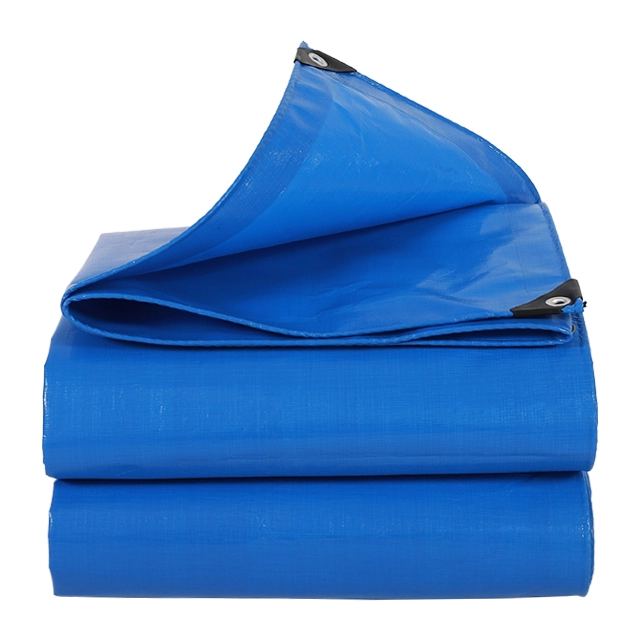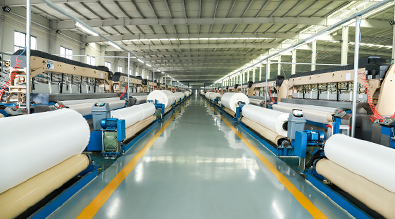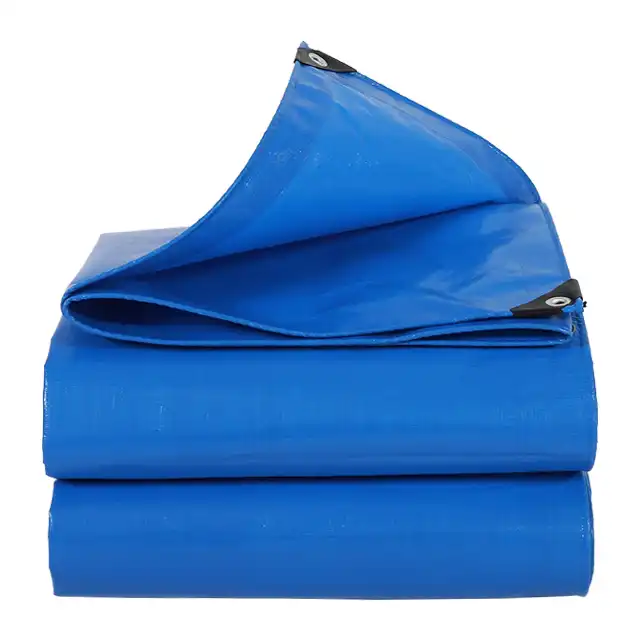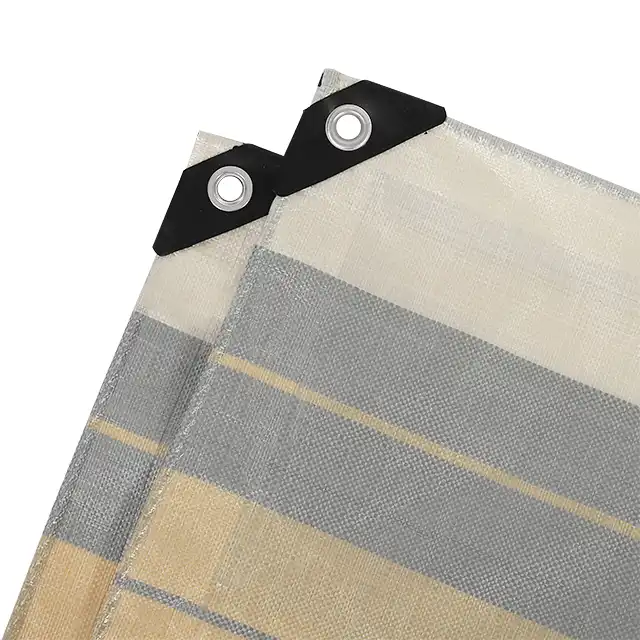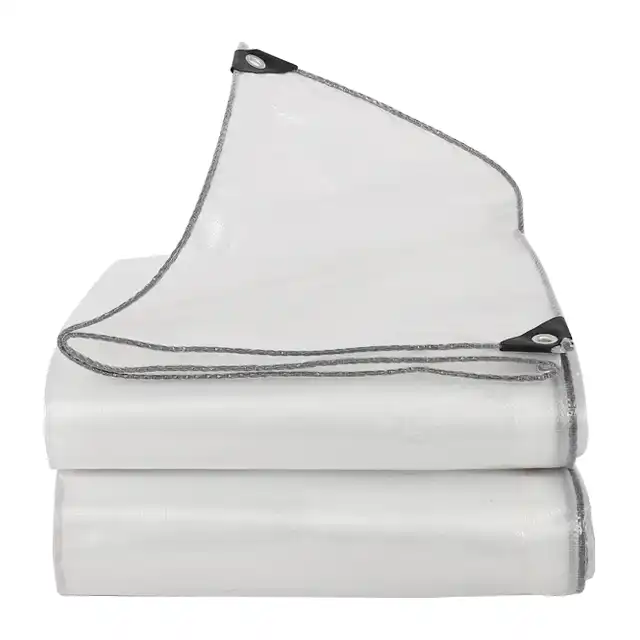Complete Guide to Choosing the Best OEM/ODM PE Tarpaulin for Your Business
Selecting the right OEM/ODM PE tarpaulin supplier is a critical business decision that can significantly impact your operational efficiency, cost structure, and customer satisfaction. With the global tarpaulin market experiencing substantial growth, businesses across industries are increasingly recognizing the importance of partnering with reliable manufacturers who can deliver high-quality PE tarpaulin solutions tailored to their specific requirements. This comprehensive guide will walk you through the essential factors to consider when choosing an OEM/ODM PE tarpaulin partner, from understanding material specifications and manufacturing capabilities to evaluating quality standards and customization options. Whether you're in construction, agriculture, logistics, or any industry requiring protective covering solutions, making an informed decision about your PE tarpaulin supplier will ensure you receive products that meet your durability, performance, and budget expectations while supporting your long-term business objectives.

Understanding PE Tarpaulin Quality Standards and Specifications
Material Composition and Construction Methods
When evaluating PE tarpaulin quality, understanding the fundamental construction is essential for making informed purchasing decisions. High-quality PE tarpaulin is manufactured using high-density polyethylene (HDPE) woven fabric combined with low-density polyethylene (LDPE) coating, creating a durable and versatile protective material. The manufacturing process involves extruding polyethylene fibers into yarn ranging from 400D to 2500D thickness, which are then woven into fabric using advanced water-jet looms. This PE tarpaulin construction method ensures optimal strength-to-weight ratio while maintaining flexibility and durability. The fabric is subsequently coated on both sides with LDPE, creating a waterproof barrier that protects against moisture penetration. Professional manufacturers utilize specialized coating machines, including wide-width units capable of handling fabric up to 5 meters without joints, ensuring consistent quality across large surface areas. The coating process requires precise temperature control and expert technicians to achieve uniform thickness and proper adhesion between the woven fabric and coating layers. This sophisticated manufacturing approach results in PE tarpaulin products that deliver superior performance across various applications while maintaining cost-effectiveness for bulk orders.
Weight Classifications and Performance Characteristics
PE tarpaulin weight specifications directly correlate with performance capabilities and application suitability, making weight selection a crucial consideration for optimal product performance. Light-duty PE tarpaulin typically ranges from 65gsm to 100gsm, offering basic protection for temporary applications such as covering materials during transport or providing temporary shelter solutions. Medium-duty PE tarpaulin, weighing between 100gsm and 180gsm, provides enhanced durability and weather resistance, making it suitable for construction sites, agricultural applications, and semi-permanent covering requirements. Heavy-duty PE tarpaulin, ranging from 180gsm to 280gsm, delivers maximum strength and longevity for demanding industrial applications, permanent installations, and harsh environmental conditions. The weight of PE tarpaulin also influences its tear resistance, UV protection capabilities, and overall lifespan, with heavier variants typically offering superior performance in these areas. Understanding mesh count specifications, which range from 10x10 to 14x14, helps determine the fabric's structural integrity and resistance to tearing under stress. Thickness measurements, expressed in mils and ranging from 7 to 12 mil, provide additional insight into the product's durability and protective capabilities. These specifications work together to define the PE tarpaulin's performance envelope and help buyers select products that match their specific operational requirements.
Color Options and UV Protection Features
Color selection in PE tarpaulin serves both functional and aesthetic purposes, with different colors offering varying levels of UV protection and heat absorption characteristics. Standard PE tarpaulin colors include blue, green, silver, white, and black, each providing specific advantages depending on the intended application. Silver and white PE tarpaulin options reflect sunlight effectively, reducing heat buildup underneath and providing cooler conditions for covered materials or personnel. Blue and green varieties offer excellent visibility while maintaining professional appearance, making them popular choices for construction and commercial applications. Advanced PE tarpaulin manufacturing incorporates UV treatment ranging from 1% to 7%, significantly extending product lifespan by protecting against harmful solar radiation that can cause material degradation and color fading. This UV protection is achieved through specialized additives integrated during the manufacturing process, creating a molecular barrier against ultraviolet damage. High-strength yarn construction provides additional UV protection, with some manufacturers offering extended warranties against UV-related degradation. The combination of appropriate color selection and UV treatment ensures PE tarpaulin maintains its structural integrity and appearance throughout extended outdoor exposure. Custom color options are available through OEM/ODM partnerships, allowing businesses to match corporate colors or specific project requirements while maintaining the protective benefits of standard formulations.
Manufacturing Capabilities and Production Capacity Assessment
Advanced Equipment and Production Lines
Evaluating a manufacturer's equipment and production capabilities is fundamental to ensuring reliable supply chain performance and consistent product quality. Leading PE tarpaulin manufacturers operate sophisticated facilities featuring multiple wire drawing lines, typically 15 or more units, capable of producing various yarn thicknesses to meet diverse specification requirements. Modern production facilities incorporate over 200 water-jet looms, including specialized wide-width units capable of handling 4.25-meter fabric widths, enabling the production of large PE tarpaulin sheets without seaming joints that could compromise structural integrity. Coating operations require specialized machinery, with top-tier manufacturers operating five or more coating machines, including ultra-wide 4.4-meter units that ensure uniform application across the entire fabric width. The finishing process involves multiple production lines equipped with large heat-sealing machines, typically seven or more units, capable of processing diverse size requirements and custom configurations. Advanced PE tarpaulin manufacturing facilities employ computer-controlled systems that monitor tension, temperature, and coating thickness throughout the production process, ensuring consistent quality and minimizing material waste. Printing capabilities allow for custom branding and identification marking, adding value for businesses requiring branded PE tarpaulin products. The integration of automated quality control systems throughout the production chain enables real-time monitoring and adjustment, maintaining strict adherence to specifications and reducing defect rates.
Workforce Expertise and Quality Control Systems
The human element in PE tarpaulin manufacturing significantly impacts product quality and production efficiency, making workforce evaluation a critical component of supplier selection. Established manufacturers typically employ over 600 skilled workers, including specialized technicians responsible for operating complex machinery and monitoring quality parameters throughout the production process. These facilities maintain comprehensive training programs that ensure workers understand the intricacies of PE tarpaulin production, from yarn extrusion through final packaging. Quality control teams conduct regular inspections at each production stage, utilizing advanced testing equipment to verify material properties, dimensional accuracy, and performance characteristics. Professional technicians oversee critical processes such as coating application, where precise control of temperature, pressure, and material flow directly impacts the final product's waterproofing effectiveness and durability. The manufacturing process benefits from experienced supervisors who can identify potential issues before they affect product quality, implementing corrective measures that maintain production standards. Well-trained workers contribute to achieving daily output targets, with leading manufacturers capable of producing over 100 tons of PE tarpaulin sheets daily while maintaining consistent quality standards. This combination of skilled personnel and systematic quality control ensures that OEM/ODM partners receive products that meet their specifications and performance expectations consistently.
Monthly Production Capacity and Scalability
Understanding a manufacturer's production capacity and scalability potential is essential for businesses planning growth or managing seasonal demand fluctuations. Top-tier PE tarpaulin manufacturers typically maintain monthly production capacities exceeding 4,000 metric tons, providing the volume necessary to support large-scale operations and multiple customer relationships simultaneously. This substantial capacity ensures reliable supply availability even during peak demand periods, reducing the risk of stockouts that could disrupt business operations. Production scalability depends on factors including equipment availability, raw material sourcing capabilities, and workforce flexibility, with established manufacturers maintaining contingency plans for capacity expansion when needed. Advanced production planning systems enable manufacturers to optimize resource allocation, balancing multiple customer orders while maintaining delivery schedules and quality standards. The ability to handle rush orders or seasonal spikes in demand demonstrates manufacturing flexibility that benefits OEM/ODM partnerships, particularly for businesses operating in seasonal markets or responding to unexpected opportunities. Inventory management capabilities, including raw material stockpiling and finished goods storage, support consistent production flow and enable manufacturers to respond quickly to changing customer requirements. Long-term capacity planning ensures that growing partnerships can be accommodated without compromising service levels or product quality, supporting sustained business relationships and mutual growth objectives.
Customization Services and Application-Specific Solutions
OEM/ODM Service Capabilities and Custom Specifications
Professional PE tarpaulin manufacturers offer comprehensive OEM/ODM services that enable businesses to develop products tailored to their specific requirements and market positioning. These services encompass custom sizing options, with manufacturers capable of producing PE tarpaulin sheets and rolls in virtually any dimension, from standard commercial sizes to specialized configurations for unique applications. Roll width capabilities extending up to 5.1 meters eliminate the need for seaming in large installations, providing superior structural integrity and aesthetic appeal. Custom weight specifications allow businesses to optimize material performance for their specific applications, balancing durability requirements with cost considerations to achieve optimal value propositions. Mesh count customization provides additional control over fabric characteristics, enabling fine-tuning of tear resistance, flexibility, and permeability properties. Thickness variations, precisely controlled during the coating process, allow for application-specific optimization of waterproofing effectiveness and mechanical properties. Logo integration and custom branding options enable businesses to enhance their market presence while utilizing high-quality PE tarpaulin products. Color customization extends beyond standard options, with manufacturers capable of producing virtually any color specification to match corporate identity or specific application requirements. These comprehensive customization capabilities enable businesses to differentiate their offerings while leveraging proven manufacturing expertise and quality control systems.
Application-Specific Design and Engineering Support
Leading PE tarpaulin manufacturers provide engineering support that helps businesses optimize product specifications for their intended applications, ensuring maximum performance and value. Construction applications require PE tarpaulin products with enhanced tear resistance and UV protection for extended outdoor exposure, with manufacturers providing guidance on appropriate weight and coating specifications. Agricultural applications benefit from customized permeability characteristics and specialized UV formulations that protect crops while maintaining necessary air circulation. Aquaculture applications demand superior waterproofing and chemical resistance, requiring specialized coating formulations and sealing techniques that prevent water penetration and contamination. Transportation and logistics applications prioritize lightweight durability and ease of handling, with manufacturers optimizing fabric construction and coating thickness to achieve optimal strength-to-weight ratios. Industrial applications often require flame-retardant properties or chemical resistance, capabilities that manufacturers can integrate through specialized additives and coating formulations. Greenhouse and horticultural applications benefit from light transmission optimization and thermal performance characteristics that support plant growth while providing environmental protection. The engineering support process typically involves application analysis, performance requirement assessment, and collaborative development of optimized specifications that meet both functional and economic objectives. This consultative approach ensures that businesses receive PE tarpaulin products that deliver superior performance in their specific operating environments.
Multi-Application Versatility and Feature Integration
Modern PE tarpaulin products demonstrate remarkable versatility across diverse applications, with manufacturers developing solutions that serve multiple functions while maintaining cost-effectiveness. Packaging applications utilize PE tarpaulin's moisture barrier properties and tear resistance to protect goods during storage and transportation, with custom sizing and closure options enhancing handling efficiency. Wood cover applications benefit from breathability characteristics that prevent moisture accumulation while protecting against precipitation and UV exposure. Truck cover applications require lightweight durability and secure fastening options, with manufacturers providing integrated grommets and reinforcement strips that facilitate installation and ensure secure attachment. Car canopy and sun shade applications emphasize UV protection and aesthetic appeal, with color-fast formulations and attractive appearance supporting consumer market requirements. Picnic pad and leisure tent applications prioritize comfort and portability, with specialized coating formulations providing comfortable surface textures while maintaining waterproofing effectiveness. The feature integration process combines multiple performance characteristics into single products, such as incorporating anti-freezing properties for cold-climate applications or shrink-proof treatments for dimensional stability. Arctic flexibility ensures PE tarpaulin maintains pliability in extreme cold conditions, while anti-corrosion treatments protect against chemical exposure. This multi-functional approach enables businesses to simplify their supply chains while ensuring comprehensive protection across varied operational requirements.
Conclusion
Choosing the right OEM/ODM PE tarpaulin partner requires careful evaluation of quality standards, manufacturing capabilities, and customization services to ensure optimal business outcomes. The decision impacts not only immediate cost considerations but also long-term operational efficiency, customer satisfaction, and competitive positioning. By prioritizing manufacturers with proven expertise, comprehensive quality control systems, and flexible production capabilities, businesses can establish partnerships that support growth and adapt to evolving market requirements.
Ready to transform your business with premium PE tarpaulin solutions? Linyi Shengde Plastic Co., Ltd. brings over 20 years of manufacturing excellence, ISO 9001:2015 certification, and partnerships with international organizations like UNHCR and UNICEF. Our state-of-the-art facility spans 60,000 square meters with advanced equipment including 400+ Korea-imported water-jet looms and ultra-wide coating machines capable of producing seamless 5-meter width products. With monthly production capacity exceeding 4,000 metric tons and a skilled workforce of 600+ professionals, we deliver consistent quality and reliable supply for businesses worldwide. Our research and development team continuously innovates, developing breakthrough solutions like ultra-wide braiding technology and enhanced fire-prevention features. Contact us today at info@shengdetarp.com to discuss your specific requirements and discover how our customized PE tarpaulin solutions can enhance your business operations while delivering exceptional value and performance.
References
1. Industrial Textile Manufacturing Standards and Quality Control Processes, Journal of Polymer Materials Engineering, 2023.
2. Polyethylene Tarpaulin Applications in Construction and Agriculture Industries, International Building Materials Review, 2022.
3. UV Protection Technologies in Synthetic Fabric Manufacturing, Materials Science and Engineering Quarterly, 2023.
4. OEM/ODM Partnership Strategies in Industrial Textile Manufacturing, Global Supply Chain Management Review, 2022.
5. Quality Assessment Methods for Waterproof Synthetic Fabrics, Textile Testing and Performance Standards, 2023.
6. Manufacturing Capacity Planning and Scalability in Polymer Processing Industries, Industrial Production Management Journal, 2022.
